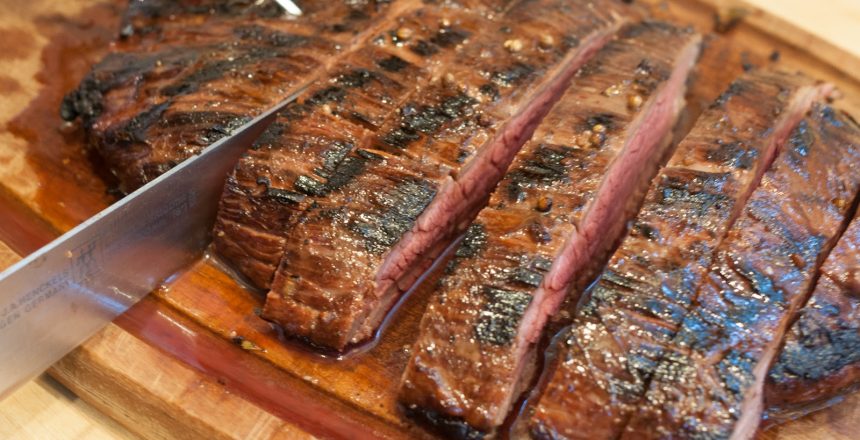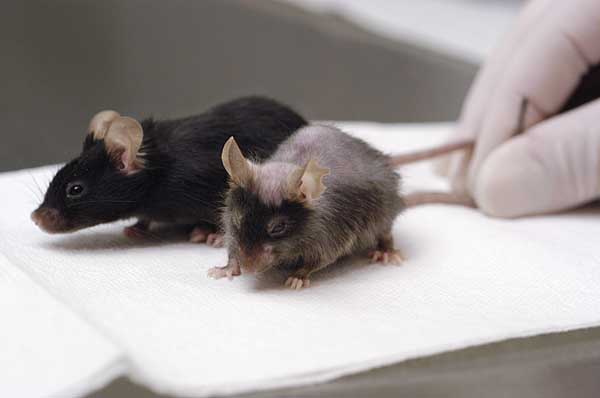Sometimes I get the feeling that those in our entrenched nutritional and health establishments don’t know what they’re talking about. Has all dietary advice been wrong? Surely not all of it, but most of the mainstream talking points today are definitely wrong, and you’ll be healthier ignoring most of it.
Let’s look at these main points.
Saturated fat, cholesterol, and heart disease
Mainstream health and nutrition has told us for many decades, at least since the 1960s, to avoid saturated fat, on the grounds that it blocks coronary arteries and causes heart disease. Cutting back on saturated fat has been official government policy since the late 1970s.
It’s becoming increasingly clear that saturated fat is perfectly healthy.
A meta-analysis done a few years ago, one that I’ve cited many times, found:
Conclusions: A meta-analysis of prospective epidemiologic studies showed that there is no significant evidence for concluding that dietary saturated fat is associated with an increased risk of CHD or CVD. (ref.)
Furthermore, carbohydrates, not saturated fat, have been found to correlate with heart disease in more recent studies. (See here and here.)
Dietary cholesterol is now acknowledged even by the mainstream as being of little to no significance, after decades of telling us to avoid it.
And higher blood levels of cholesterol are associated with longer life, not shorter.
Saturated fat is clearly a case where the dietary advice has been wrong.
Meat and cancer
We get told a lot that meat, especially red meat and processed meat, causes cancer.
Is that really true? Was it the hamburgers and hot dogs, or was it the buns, fries, and sodas that people ate with them?
Dr. Georgia Ede has done a lot of leg work on this one: WHO [World Health Organization] Says Meat Causes Cancer?
Dr Ede finds the evidence put forth by the WHO as weak and unconvincing; “all politics and no science”. She reviews these studies in detail so please have a read at her site.
The upshot is, the evidence that meat causes cancer is exceedingly weak and in some cases non-existent.
Even the evidence against processed meat is weak. In this day and age, people are very biased about this, wanting everything fresh and “organic”.
But bacon actually prevents colon cancer in rats. (Ref.)
Vegetarians don’t live longer than others
The mainstream has long held out vegetarianism or veganism as the ideal regarding diet and health.
These days they tend to call it “plant-based”, since that term may be more palatable to the public.
But, we now know that vegetarians don’t live longer than others. Previous studies that found that they did were confounded, because vegetarians are more health conscious. When you compare them to other, omnivorous, but health conscious people, the advantage disappears.
Health conscious people live longer, whether they eat meat or not.
And veganism is associated with a long list of health problems.
Ultra-processed plant foods, the real health scourge
While we’ve been told to avoid meat and saturated fat, we’ve also been told to increase our intake of carbohydrates. We have to eat something, after all.
Sugar was held out as something benign.
And they told us to use seed (vegetable) oils in place of saturated fat.
So, people started eating a lot more carbohydrates and sugar, and they did cut back on saturated fat.
The result: an epidemic of obesity and diabetes.
So, the advice to eat less meat led to eating more ultra-processed junk food, which has been a disaster.
High protein is healthy
One of the most persistent myths that the establishment has encouraged is the idea that too much protein is harmful, and in particular, harms the kidneys.
But a recent study found that there is no evidence that high protein diets cause any harm to the kidneys.
One of the alleged disadvantages of eating a low-carbohydrate diet has been that you would ingest too much protein.
That idea needs to be laid to rest.
More protein leads to stronger bones and higher muscle mass.
What else?
Just off the top of my head:
- they told us that fasting was bad, and that we should eat many small meals daily, a practice known as grazing
- they told us to avoid the sun. That’s not nutritional, but is typical in that they told us not to do something that our ancestors did regularly.
- they told us to eat a lot of fiber, but fiber has been underwhelming in effect.
Even now, after all this, plans are afoot to get the world to go vegan.
There will soon be meat taxes, and the health misinformation campaign will continue.
Don’t be fooled. They got just about everything wrong so far, and they won’t be right in the future.














17 Comments
So you’re basically saying you don’t know which advice to take and then you’re trying to give advice…
Who cares if veganism makes you live extra long?
Do it for the animals and the environment
Exactly why should I sacrifice my health for animals who could not care less about my well being? If the issue is that most animal production requires huge amounts of grains to “finish” the beef, then the answer is not using feed lots, not not eating beef.
Ruminants can live on land that is absolutely unusable for plant agriculture. And if you think plant eaters aren’t impacting the environment, you are intentionally avoiding the obvious. All those crops kill many animals, perhaps more in shear numbers. How about ozone depletion and global warming flying those Chilean grapes into the USA during our winter?
Seems like you’re pushing the keto diet here. There’s plenty of studies that show negative effects of that as well. I feel like it’s dangerous to encourage people to adopt any type of extreme diet that restricts entire food groups, especially the macronutrients (ie. protein, carbohydrates and fats). The body needs everything in moderation.
Carbohydrates are not a required nutrient. The body needs exactly zero carbs, so it doesn’t need them in “moderation”. And a ketogenic diet is perfectly healthy; the high carb, low fat diet led to the obesity epidemic.
On the matter of protein. I just heard some vegan, actual MD, say that if you can walk into her office, you are getting enough protein! I highly respect Dr. Peter Attia, read his blog for years and have watched most all of the Youtube vidoes that he’s in. He advocates some vague “eat enough protein to fit your needs, but not more.” And then there are all the suggested standards of X grams per Y weight. But, “weight!” Does that mean the current body weight with a high BMI, or based on the LBM, Lean Body Mass? (The latter makes more sense to me.)
Now throw in the recent findings that the elderly (who, me?) need more protein, regardless of body weight, than younger people. I don’t recall if there were any suggested reasons this might be true. And couple that with the prevalent sarcopenia in us elders, and now we have more confounders.
Let me throw another dimension into the matrix. It’s widely reported that people going on the carnivorous diet attain more muscle without doing anything differently in their exercise regimen. While this anabolism might well be due to micronutrients, macronutrient ratios, or undiscovered reasons, the most likely explanation would be just having lots of quality protein available.
I’ve heard practitioners talk about eating 2-3 pounds of beef a day, women towards the lower end, men obviously towards the upper. Or more. Obviously, the cuts will vary in macronutrient ratios, but if we consume 3 pounds of 85% ground beef, that’s 253 grams of protein! (80% lean would be 233 grams and even the fatty 75% is 214 grams.) Any of which is enough to make the anti-protein crowd’s heads explode.
I don’t particularly like exercise of “the gym.” But I do machine resistance work probably four times a week. Looking at the weight stacks other men select, I can say I seem to be stronger than all but the obvious long term gym rats. While I am currently overweight – again, and this too shall pass, again – my muscles are obvious.
I attribute some of this success to eating some 150-250 grams of animal protein a day.
That should have been OR the gym, not “of.”
Don’t forget the “keep your salt intake to less than 2300 mg for better health “ myth
Yes, that’s a good one.
The whole idea that “someone” has to tell us what to eat is ridiculous. (A South Park episode comes to mind here; where the Surgeon General says that people need advice on diet, otherwise they would just eat any old thing; and then they show the people of South Park eating chairs, because they are confused about diet….ha ha…) But seriously, my theory is that if we are eating natural whole foods (as opposed to processed junk and sugar), we pretty much know what we need, based on taste. If I’m craving salt, I assume my body needs salt. I drink if I feel thirsty, but there’s no point in cramming down water if I don’t feel thirsty- (that’s another myth in my opinion, “we have to drink at least 8 glasses of water per day, no matter what”). In regards to protein, I also think the body “knows” how much protein it needs. In animal studies, the animals always naturally eat a pretty set amount of protein per day. Within human populations, the fat and carbohydrate percentage of the diet may change, but protein seems to stay within a pretty tight range. I’ve read that it’s actually quite difficult for us to “overeat” protein, because we start having uncomfortable symptoms, or it may even become unpalatable when we’ve had enough. There are times, and certain situations where some of us may need more, or less protein. I think if we follow our natural instincts, rather than blindly following some kind of “ideal” mathematical formula, we’ll be fine. After having health problems due to following the conventional advice supposedly “based on science” (ha!), I am more skeptical than ever of any kind of (governmental) dietary advice.
Pretty much every diet is confounding for several reasons, most of which involves genetics, food availability and about 100 other variables. I love a low fat diet and it works great for me, until I lift heavy, then I need carbs to minimize DOMS and help me feel 100%. Otherwise I have terrible DOMS and feel like half a human for several days. I have learned to vary my diet, increase the carbs to 30-40% around workout days twice a week and then reduce the carbs to 15+/-% between my two full body workouts. But that’s just me, and your mileage WILL vary due to the 100 variables above. I started from scratch two years ago and now workout with 200+/- lbs in bench, 225+ squats and 300+/- lbs in dead lift, I am 180+/- & 58 years old. Thanks to Rogue for the helpful push now and then, T-Nation, AthleanX for the exercise science and I use my own feeling to gauge how my workout changes each time. I rotate Bench, Squats, Rows and Deads concentrating extra on the initial choice of the four.
If you are over 50 and not lifting weights, get off your butt and get going! I started out unable to do a single pull up, oh maybe 1. I can now do 7-8 slow perfect pullups. It took nearly two years to get here, so growth and strength happens slowly for us old timers but it’s well worth the effort. Keep up the good work and live a fuller longer life!
My 85 year old mother saw what I did and is now squatting too, taking several vitamins and running circles around her dying friends. She is a great example that improvement is possible at any age!
Dennis: In terms of supplementing K2 in order to ensure the proper allocation of calcium etc. that comes from teaming K2 and D3, do you know if it matters whether the K2 is the vegetable form (MK-7) or the animal form (MK-4). I only recently learned about the distinction, and noticed that the NOW brand I have been using is MK-7 (vegan), so I am concerned that the synergy with D3 may not be optimal. But I have not been able to find any sources that say whether MK-4 or MK-7 is more/less effective. Don’t know if you have any research on this?
Daniel, sorry for the late reply, but check out this article in which I discussed this, along with good comments. In a nutshell, I’ve been using both forms, 4 and 7.
Vaguely concerning the topic of “All advice being wrong” from your headline – I recently read Robin Baker’s “Fragile Science – the Reality Behind the Headlines”.
Concerning the topic of sun exposure/vitamin D, he notes that despite decades of animal testing,
no serious forms of skin cancer could be induced in test animals by any exposure to natural sunlight alone.
Cancer could only ever be induced by shining artificial sunlight (that is, UV lamps that not perfectly correspond the natural sunlight spectrum organisms evolved to) on their skin, and by combining topically applied chemicals (interestingly also exactly those in sun protection creams) with light exposure.
The accumulated evidence suggests that sunscreen skin care products are actually increasing skin cancer in animals as well as humans, contradictory to their stated benefit.
While sunblockers do indeed filter out some UV-radiation from reaching the skin, their chemical constituents, alone or combination with the intense, chemical-reactivity-enhancing UV radiation , appear to cause most of the skin cancer in humans.
Very interesting, thanks. Many people report that since they stopped ingesting seed oils, they no longer get sunburns, and in fact seed oils seem to increase risk of skin cancer.
Thank you for the excellent link and article, Dennis, and apologies for not searching your site more thoroughly in advance of asking my question.
I think I will begin supplementing both M-4 and M-7 as well, since it appears inconclusive which is superior.
This is an interesting post. I first came to this site when I was reseaching information about the Mediterranean Diet and read your post about that, pointing out how certain types of fasting days are observed throughout the year, plus helpful comments from other readers about how the diet with fasting is implemented.
One takeaway I got from that post and from other articles online is that the Mediterrean Diet is low on meat and saturated fat consumption. Meat is eated about once a month, chicken once a week, seafood and eggs a few times a week. OIive oil (in large quantities) replaces butter. It’s true that whole milk, cheese, and yogurt are consumed, more as a condiment. Whole grains, beans, and whole grain bread are also eaten. The evil carbs! A commenter on that post states that observers of the diet who follow the fasting rules usually eat vegetarian meals for more than half of the entire weekly diet.
It has been shown that people who have been eating that diet for thousands of years are strong and healthy and live far beyond what is considered a “normal” lifespan today. Of course, there are other factors of the old-time Mediterrean lifestyle that contribute to this level of health. They didn’t go to the gym a few hours a week; they were out working hard all day growing crops, herding goats and sheep, and had no pollution of any kind.That is means they directly produced their own food and ate it only in season. Without refrigeration they had methods of preserving vegetables and fruits to last them through the winter.
Meat was consumed as soon as it was slaughtered, when the entire community was invited to take part so that nothing went to waste Pretty different than having fresh fruit, vegetables, and meat available to us all year and refrigeration available to us. Another commenter also pointed out how they incorporated wild greens, which most Americans spray with “weed” killer. Some of the most nourishing plant foods are wild rather than cultivated.
I feel inclined to prefer the Mediterrean Diet overall. I’m not a member of an Orthodox church so the complexities of their rules don’t apply to me on a religious level, and will involve research for further understanding, The lifestyle components such as living in an entirely unpolluted environment are beyond my ability to control and I’ll probably never have the opportunity to fulfill my wish to spend my days tilling the fields or herding ruminants.
I feel confused about why the posts on these seemingly different dietary approaches are recommended on your site. Could you elucidate further? Thank you.